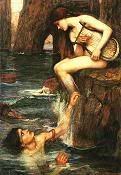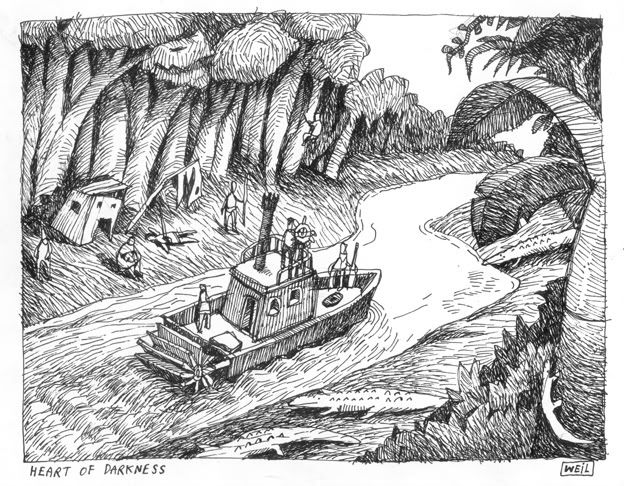Now is the winter of our discontent
Made glorious summer by this son of York;
And all the clouds that loured upon our house
In the deep bosom of the ocean buried.
Now are our brows bound with victorious wreaths,
Our stern alarums changed to merry meetings,
Our dreadful marches to delightful measures.
Grim-visaged war hath smoothed his wrinkled front,
He capers nimbly in a lady’s chamber
To the lascivious pleasing of a lute.
But I, that am not shaped for sportive tricks
Nor made to court an amorous looking-glass;
Why, I in this weak piping time of peace
Have no delight to pass away the time,
Unless to spy my shadow in the sun
And descant on mine own deformity.
And therefore since I cannot prove a lover
To entertain these fair well-spoken days,
I am determined to prove a villain
And hate the idle pleasures of these days.
(Act 1, scene 1)
This passage, being the first lines of the novel, sets up what is to come. Here the reader sees Richard's plans to conquer the throne by any means he sees fit. A first look at Richard's selfishness is seen here along with his evilness. He need for power is also apparent here along with the reader being told about his deformity. He uses his deformity as an excuse as to why he has no need to be peaceful being that he can never have a lover. Instead of giving sympathy to Richard, it makes him seem more monstrous, because he can so happily toss aside all of the things that the rest of society cherishes such as the peacefulness. At the same time, Richard’s speech makes his true motivations seem all the more mysterious and dark. Thinking back on the play, throughout me reading it, I do not ever remember thinking about Richard's deformity. I completely forgot about it until I chose my passage for the blog. I find it odd that typically a deformity takes away some evil aspect of a person and gives them a little bit of sympathetic light. In the play however, Richard is so extremely evil, that not once did I ever give him and sympathy nor did I ever think of his deformity. It really did truly make him a more ugly person both on the inside and the outside being that he used his deformity as an excuse to be evil and not care about other people.
While reading the play, I never thought of it as a history but rather as a story. Which is good for Shakespeare and shows his great writing talents being that I learned something and did not even realize it. I also give props to Shakespeare being that he made a commentary on the time period in which he lived in. Back in the day, what Richard did was a common thing. Power was what mostly all people wanted. In the end, Shakespeare used histories as a comment on his society; especially the political aspect of society. His histories are also very blunt unlike the comedies. The hero's are clearly hero's while the villain's are the epitome of villain's. He leaves the reader at the end of the novel with a moral story of history being able to repeat itself if one becomes blind to certain things. This blindness is exactly what the character in the play were. They knew how evil Richard was, however whenever they gave him the chance to talk they forgot all about it.
I did not enjoy this play as much as the others. This is only because it is more of a visual play then one you should read. It was hard to grasp everything that was going on without seeing it visually on a stage. An example of this was when you (Mr. Klimas) had me stage the scene where all the people Richard killed came back and haunted him. It was easier to grasp the overwhelmingness of the whole scene versus reading it on paper and making up your own image in your head. History is also not exactly my favorite genre. Comedy and tragedy, I find to me more enjoyable reads.





